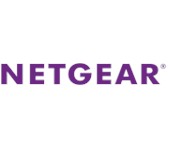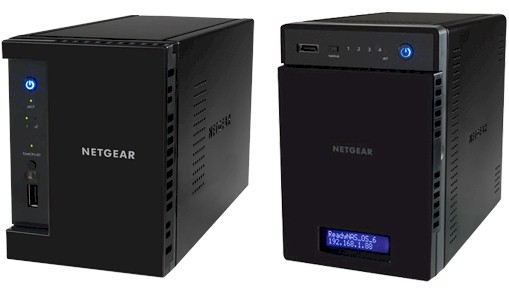 NETGEAR has announced more powerful home / SOHO NASes.
NETGEAR has announced more powerful home / SOHO NASes.
The two-bay RN212 ReadyNAS 212 and four-bay RN214 ReadyNAS 214 are beefed-up versions of their RN202 and RN204 predecessors.
Both are based on a quad-core Annapurna Labs 1.4 GHz ARM Cortex CPU. The RN202 / 204 used dual-core versions of the same processor.
Both versions accept 2.5" or 3.5" solid state or hard drives and have 2 GB of DDR3 RAM, three USB 3.0 ports, one eSATA port and dual aggregateable Gigabit Ethernet ports. NETGEAR specs performance at 200 MBps/read and 160 MBps/write.

NETGEAR ReadyNAS RN212 & RN214
The more powerful processor can perform real-time streaming and transcoding of 1080p HD content. It also provides "near-zero" throughput loss when running anti-virus scans.
Both models run ReadyNAS OS 6.4, with features including BTRFS file system supporting unlimited volume snapshots and five levels of data protection, ReadyCLOUD private cloud, Time Machine backup, folder sync, Plex, iTunes and UPnP / DLNA media servers and more.![]()
The NETGEAR ReadyNAS 212 and 214 are available now at MSRPs of $329 and $499 respectively for diskless models. Diskful SKUs of both models are also available.![]()
